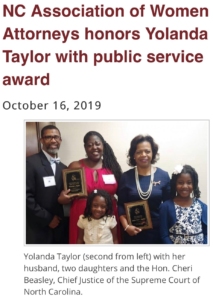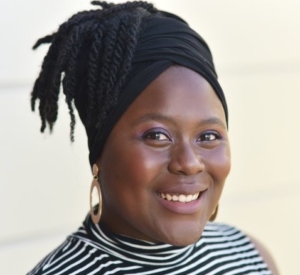After the July 7 City Council meeting, Mayor Mary-Ann Baldwin published the following statement in social media:

Mary-Ann Baldwin
“Big changes are coming to Raleigh. Yesterday, the City Council took major steps forward to make our City more equitable, affordable, safer, and welcoming to all.
After several months of staff research and planning, we followed through on our promise to allow the construction of accessory dwelling units (ADUs), also known as granny flats, by right in every residential district of the City. At the suggestion of Councilor Nicole Stewart, we eliminated a rule limiting occupancy and will allow live-work units as well as short-term rentals. I’ve asked staff to look at ways that we can encourage the construction of more ADUs. Not only does this give Raleigh residents more control over their own property, it will increase housing choices and availability. We also expanded cottage courts – an example of the “missing middle housing” we are encouraging — and eliminated minimum parking requirements downtown and in transit overlay districts. The latter change will allow housing to be built less expensively and moves us toward creating a less car-dependent city.
Additionally, Raleigh voters will officially have the opportunity to vote on an $80 million affordable housing bond this November, as we voted to move forward with the bond at our council meeting yesterday. The bond includes funding for the construction of housing through public-private partnerships, low-income affordable housing, a first-time home buyers program, and a home repair fund.
I, along with many of my fellow council members, campaigned on getting these things done, and yesterday we delivered.”
Fair Housing Attorney Yolanda Taylor responded to Baldwin:
“Lies. Some people wouldn’t know what equity looked like if it walked up to them and slapped the mask off their face.
Equity is not a word we just toss around in the air because it sounds good. Equity is about ensuring fairness in programming, local policies and outcomes.

Taylor Receiving Award
Currently, Raleigh doesn’t look like an equitable city for those who have experienced years of racial discrimination and have been victimized by others with more voiced political power. These victimizers have historically and are currently grabbing land and pushing black and brown people out of their homes and communities.
How are some “progressives” in Raleigh, any better than conservative Republicans? At least we know where conservatives stand. Yet, some of these so-called progressive policies fail to center the voices of black and brown people, who are disproportionately affected by so many systems-one being housing. So called progressive policies around growth and development are inequitable because they have led to the mass displacement of black renters in downtown Raleigh. Black Middle Neighborhoods are on the edge of flipping to becoming exclusively white and their current residents are constantly harassed day and night by hungry investors.
Now Raleigh wants to use a handful of these ADUs that you call granny flats, for commercial use and short term rentals. What does renting a “granny flat” to someone looking for an Airbnb have to do with creating affordable housing for the poor or those with the most identified need for housing? “
Raleigh’s federally mandated Consolidated Plan states:
“The primary housing challenge for Raleigh’s low- and moderate-income residents remains housing affordability. Raleigh is one of the fastest growing cities in the nation, and with this rapid growth has come rising land values and increased housing costs. Concurrently, incomes for lower-wage earners have failed to keep pace, with very-low (50% AMI) and extremely-low (30% AMI) income households being most affected. Racial and ethnic minorities, most notably African Americans, are disproportionately affected compared to Whites.”
Equity requires Raleigh to deal with its stated and identified issue around housing instead of just using this language in a HUD document to secure more HUD dollars and then using those same HUD dollars against the very people the dollars are supposed to help.
As it relates to the proposed affordable housing bond, the question remains #affordable4who? The draft bond is #notenough because there are no details on who the bond will help. Will it help the people who really need housing which are more people now because of this economic down turn caused by Covid-19. Or will this so called affordable housing bond help developers who wish to build housing unaffordable to the 30% and below? Again, equity ensures fair outcomes. If development policies aren’t ensuring that marginalized communities, low-wealth people of color with the most identified need for housing are helped—then there’s no equity here.”

Photo by Seasons4Photos
Columnist Courtney Napier echoed Yolanda Taylor’s concerns in this recent IndyWeek article:
“It is common knowledge in the Raleigh activist community how Mayor Baldwin and the council truly feel about the issues most impacting its Black and Brown residents.”
Also See Related Affordable Housing Bond Blog Posts:
> Raleigh’s Affordable Housing Bond: No Commitments = No Accountability
> The City Council’s Affordable Housing Bond Issue: “Buckets” of Debt ($80 mil) in Search of a Plan
